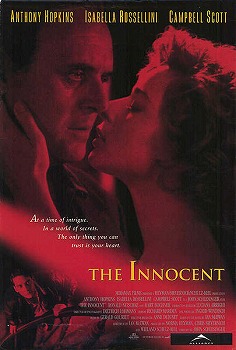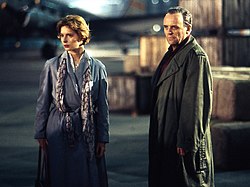| The Innocent | |
|---|---|
 Theatrical release poster | |
| Directed by | John Schlesinger |
| Written by | Ian McEwan |
| Based on | The Innocent by Ian McEwan |
| Produced by | Norma Heyman Wieland Schulz-Keil Chris Sievernich |
| Starring | Anthony Hopkins Isabella Rossellini Campbell Scott |
| Cinematography | Dietrich Lohmann |
| Edited by | Richard Marden |
| Music by | Gerald Gouriet |
| Distributed by | Jugendfilm-Verleih (Germany) Entertainment Film Distributors (United Kingdom) |
Release dates |
|
Running time | 107 minutes [1] |
| Countries | Germany United Kingdom |
| Language | English |
| Box office | $525,955 (USA) |
The Innocent is a 1993 drama film directed by John Schlesinger. The screenplay was written by Ian McEwan and based on his 1990 novel of the same name. The film stars Anthony Hopkins, Isabella Rossellini, and Campbell Scott. It was released in the US in 1995.
